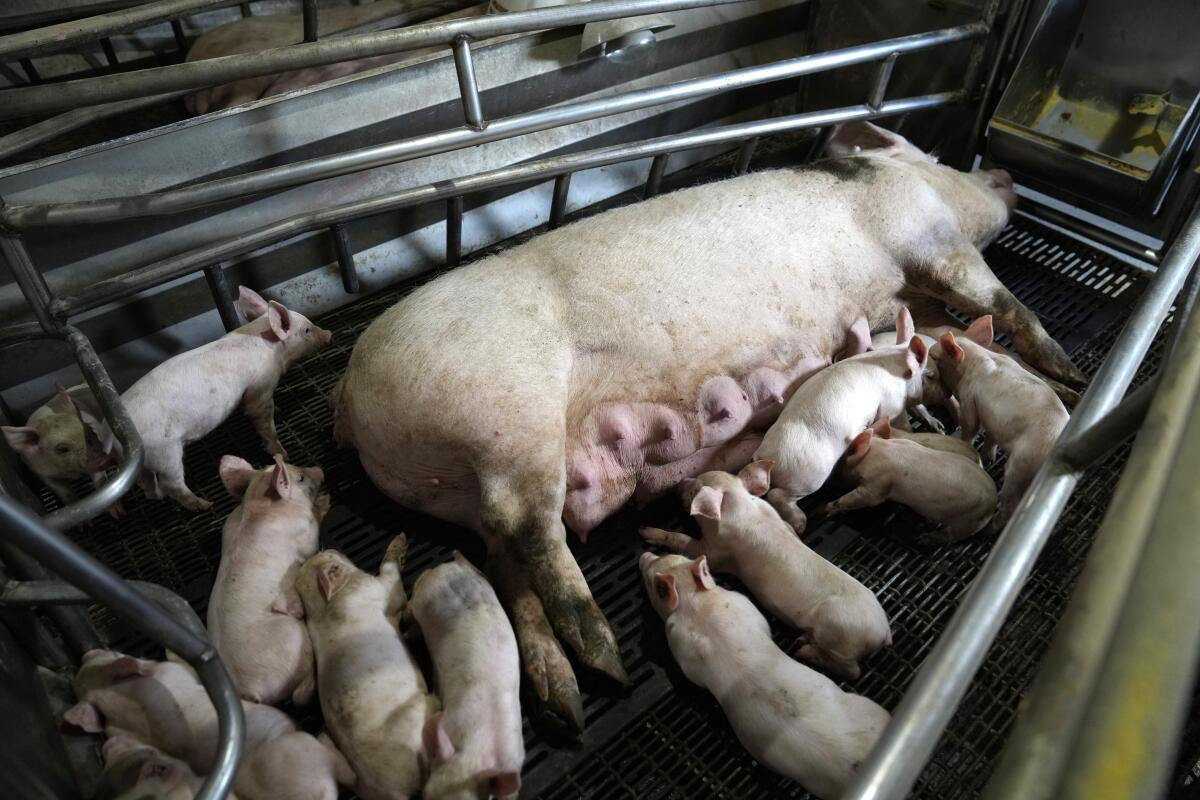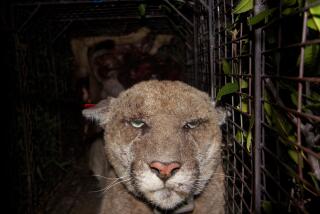Anti-cruelty law that gives pigs more space could raise ham, bacon prices

It seemed for a while that California’s controversial pork law would take effect only when pigs fly.
The law was fought all the way to the U.S. Supreme Court, but starting this month, farmers across the country must abide by the regulation, passed in 2018, which requires them to provide more space for breeding pigs in their pens or lose the right to sell their products in the Golden State.
Enforcement of the law went into effect on July 1, according to the California Department of Food and Agriculture. Violators could face fines or imprisonment.
The law, passed as Proposition 12 in California, requires that breeding pigs be confined to a pen with no less than 24 square feet of floor space, allowing them to fully turn around in their living area. The law targeted the practice among some farmers of keeping sows in cramped stalls separate from other pigs.
“When Proposition 12 passed in 2018, pork producers claimed there was no way they could ever make the transition away from confining pigs in small cages. More than four years later, the industry has changed and it has transformed to meet the demand of California,” said Josh Balk, who led the Proposition 12 initiative.
While certain parts of the law concerning hens and veal have already taken effect, the portion concerning the treatment of breeding pigs was put on pause while it was challenged in court by pork producers.
Pork farmers argued that California, which consumes around 15% of pork nationwide but only produces a marginal amount, should not be allowed to dictate the rules of pig farming to farmers outside of the state.
Opponents of the law said it would be a massive burden on producers and that the costs of the changes would be passed on to consumers.
“And they impose these enormous costs on pork producers, which will ultimately increase costs for American consumers, making it more difficult for families on a budget to afford this important source of protein,” wrote attorneys for the National Pork Producers Council in their initial lawsuit against the law in 2019.
The case was taken to the U.S. Supreme Court, which upheld the California law in May.
“While the Constitution addresses many weighty issues, the type of pork chops California merchants may sell is not on that list,” wrote Justice Neil M. Gorsuch in a majority opinion on May 11.
While the law went into effect Saturday, the state allowed for pork killed before that date to be sold in California through the end of the year.
Animal rights activists stopped short of celebrating the court’s ruling.
“This ruling does nothing to end the extreme cruelty inherent in today’s factory-farming and slaughter industry,” said PETA President Ingrid Newkirk. Despite that, Newkirk did commend the U.S. Supreme Court for “blocking the meat industry’s greedy attempt to deny mother pigs, hens and calves a miserly few inches more space in enclosures.”
More to Read
Sign up for Essential California
The most important California stories and recommendations in your inbox every morning.
You may occasionally receive promotional content from the Los Angeles Times.










